In memory of Lelio Giannetto (1961-2020)
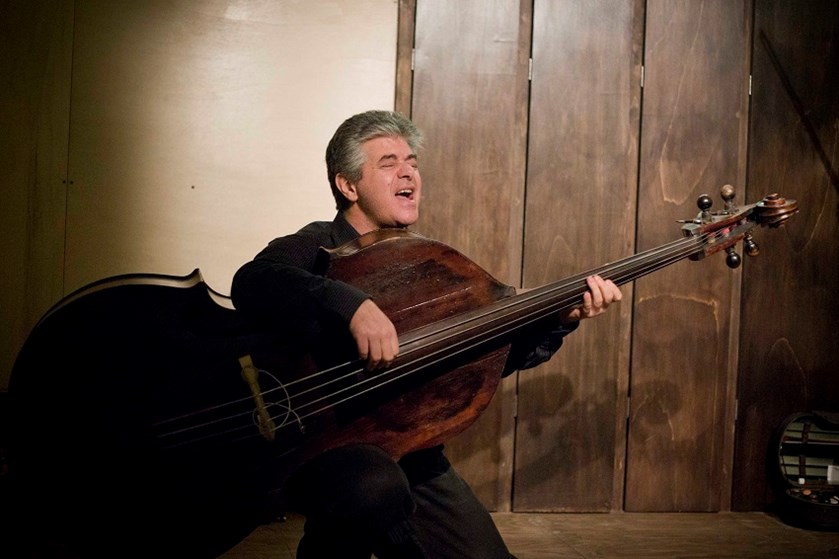
Lelio Giannetto, who died on 19th December 2020, was one of the most creative jazzmen of our times. Born in Palermo in 1961, he was a dreamer who spread all over the world a new aesthetic as a double bass player and jazz festival organizer. His music was an open laboratory of polycentric ideas: a field of osmosis between music, movies, photos and pictorial suggestions. He could play mainstream all lifelong if he wished, but he loved to play only adventurous contemporary music alongside Gianni Gebbia, Sebastian Gramss Ernst Reijseger, Fred Frith, Carlo Actis Dato, Jean Marc Montera, to name only a few.
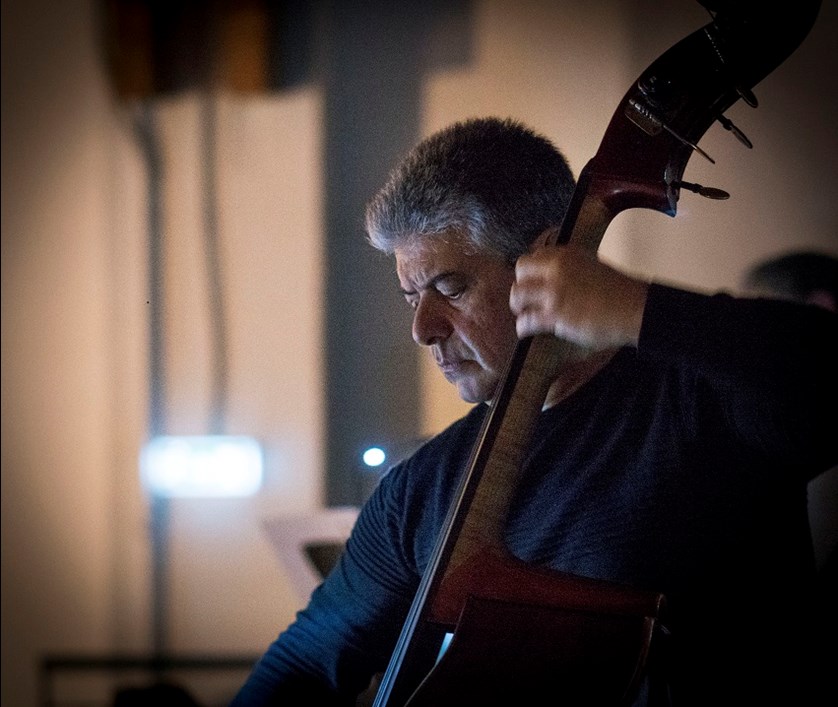
Founder of the marvelous Sicilian Improvisers Orchestra, he shared his music with theatre, movies and dance. His “speaking bass”, as he loved to define his instrument, was an earthquake generated by juxtaposing musical fields from which erupted love, passion and art. Along with the quality of the music, the power of ideas gave meaning to his creative projects made up of poetic interaction between free-jazz and the most exciting contemporary musical traditions. The extemporaneous practice in the field of improvisation was the other common denominator of his fascinating melting pot, where all of these musical features took place: the minimalism of John Cage, the Eurocolta music, the Sicilian folklore, and the most visionary Dutch, Swiss, German and Italian free jazz forms. Sharing his music with Ernst Reijseger, Barre Phillips, Mark Dresser, Sebastian Gramss, Louis Sclavis, Alvin Curran, Joëlle Léandre and Sebi Tramontana, he looked to the future of globalized society in the third millennium, without being influenced by boldly simplistic equation: popularity = success = quality. Not just only notes of music but a true work of culture, a program for connoisseurs in order to document fascinating synaesthetic links with other languages and artists of the world.
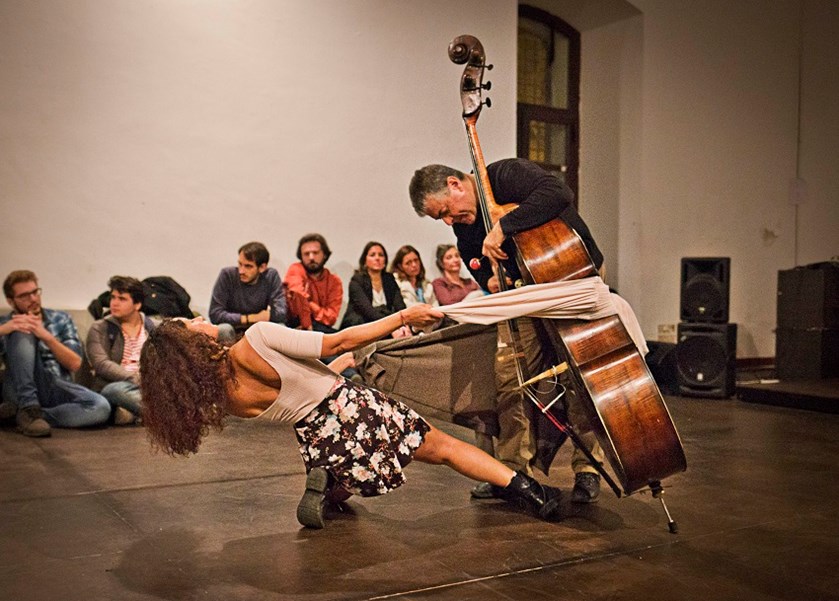
Few other jazz artists that I have met had a soul and a personality so strongly characterized as Lelio, under the sign of a collective pan-European music, which interacts with the most creative Italian jazz scene. Last but not least, I remember his generosity in promoting the best emerging Sicilian talents alongside the most successful figures in contemporary jazz.
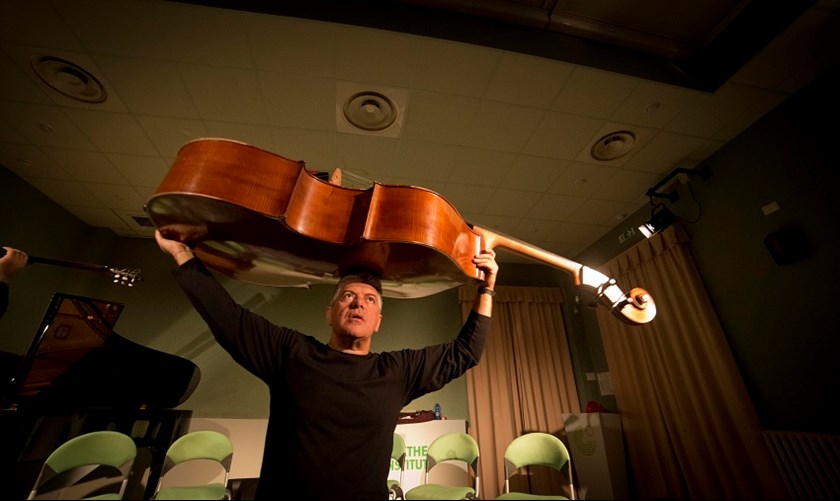
Using different musical forms and ideas, his projects were a polychrome journey having as their driving force the inclusive capacity of jazz to incorporate other languages, to transform their codes with a new and different perspective. It is a music that knows no boundaries, representing today’s globalised society in a fascinating network of musical confluences, even some foreign to jazz. If his music were a painting, it would be woven more by colour contrasts than by drawing lines, to dispense a kaleidoscope of colours, all complementary. I already miss his enthusiasm, his dream of forming a new public through the concerts, his teaching for schools and conservatories of music. Lelio lit up my musical life as jazz critic and researcher, when I used to listen his “Specchio Ensemble” (1995) produced with Angelica Festival in Bologna, “Night in Palermo” (2002), “Quella sporca ½ dozzina” (1990) with Pino Minafra and the 3 cds “Curva Minore” produced in 2009 by ethnomusicologist Gaetano Pennino for the Sicilian Administration.
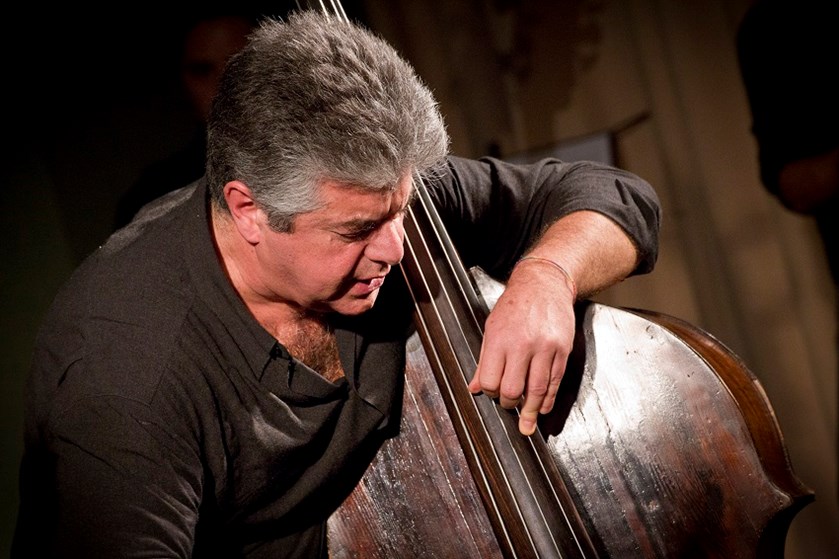
Some of my personal memories of him are linked to his festival “Curva Minore” founded in 1997, when he used to insert riffs of popular music or idioms of musical theater into his contemporary music solos. Doing so sometimes he looked at me, knowing that I understood his genius and he smiled. To his eyes, it didn’t matter about the money or the numbers in the audience during his concerts. I always felt energy, passion, love, sincerity and spirituality from his music. He was also a man of humour testified by the name of his “Trio d’orchi” (in English it means Orcs).
Text © Maurizio Zerbo - photos © Alessandro D'Amico
Thanks to Stephen Godsall for correcting the English text.
Other
In case you LIKE us, please click here:

Foto © Leentje Arnouts
"WAGON JAZZ"
cycle d’interviews réalisées
par Georges Tonla Briquet

our partners:



Hotel-Brasserie
Markt 2 - 8820 TORHOUT

Silvère Mansis
(10.9.1944 - 22.4.2018)
foto © Dirck Brysse

Rik Bevernage
(19.4.1954 - 6.3.2018)
foto © Stefe Jiroflée
Philippe Schoonbrood
(24.5.1957-30.5.2020)
foto © Dominique Houcmant

Claude Loxhay
(18/02/1947 – 02/11/2023)
foto © Marie Gilon

Pedro Soler
(08/06/1938 – 03/08/2024)
foto © Jacky Lepage
Special thanks to our photographers:
Petra Beckers
Ron Beenen
Annie Boedt
Klaas Boelen
Henning Bolte
Serge Braem
Cedric Craps
Luca A. d'Agostino
Christian Deblanc
Philippe De Cleen
Paul De Cloedt
Cindy De Kuyper
Koen Deleu
Ferdinand Dupuis-Panther
Anne Fishburn
Federico Garcia
Jeroen Goddemaer
Robert Hansenne
Serge Heimlich
Dominique Houcmant
Stefe Jiroflée
Herman Klaassen
Philippe Klein
Jos L. Knaepen
Tom Leentjes
Hugo Lefèvre
Jacky Lepage
Olivier Lestoquoit
Eric Malfait
Simas Martinonis
Nina Contini Melis
Anne Panther
France Paquay
Francesca Patella
Quentin Perot
Jean-Jacques Pussiau
Arnold Reyngoudt
Jean Schoubs
Willy Schuyten
Frank Tafuri
Jean-Pierre Tillaert
Tom Vanbesien
Jef Vandebroek
Geert Vandepoele
Guy Van de Poel
Cees van de Ven
Donata van de Ven
Harry van Kesteren
Geert Vanoverschelde
Roger Vantilt
Patrick Van Vlerken
Marie-Anne Ver Eecke
Karine Vergauwen
Frank Verlinden
Jan Vernieuwe
Anders Vranken
Didier Wagner
and to our writers:
Mischa Andriessen
Robin Arends
Marleen Arnouts
Werner Barth
José Bedeur
Henning Bolte
Erik Carrette
Danny De Bock
Denis Desassis
Pierre Dulieu
Ferdinand Dupuis-Panther
Federico Garcia
Paul Godderis
Stephen Godsall
Jean-Pierre Goffin
Claudy Jalet
Chris Joris
Bernard Lefèvre
Mathilde Löffler
Claude Loxhay
Ieva Pakalniškytė
Anne Panther
Etienne Payen
Quentin Perot
Jacques Prouvost
Renato Sclaunich
Yves « JB » Tassin
Herman te Loo
Eric Therer
Georges Tonla Briquet
Henri Vandenberghe
Peter Van De Vijvere
Iwein Van Malderen
Jan Van Stichel
Olivier Verhelst



